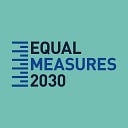“We have demonstrated the need to have statistical data on violence against women” Danessa Luna, Executive Director of ASOGEN
By Danessa Luna, Executive Director of ASOGEN
The Asociación Generando Equidad, Liderazgo y Oportunidades (ASOGEN) is an association of women in Guatemala recognised for generating and facilitating spaces for citizen participation, leadership, political analysis, defence and empowerment of women’s human rights with cultural relevance, generational, and gender equity.
One of ASOGEN’s main lines of work is the prevention of and attention to violence against women, from a human rights and feminist perspective. Guatemala is one of the worst countries for women globally. According to the EM2030 SDG Gender Index, Guatemala shows very poor performance on two indicators related to women’s physical safety:
• The percentage of women over 15 years of age who reported not feeling safe walking alone at night in the city or area where they live, with a score of 44/100;
• The number of women killed as victims of intentional homicide (per 100,000 inhabitants), with 19/100 — making it one of the worst rated countries in Latin America.
Faced with this problem of gender inequality, ASOGEN offers comprehensive accompaniment to women and girl survivors of violence, which is a fundamental part of our strategy of empowering women as a sustainable measure to eradicate violence. Advocacy is one of the approaches we work on most within the organization to influence not only the community, but also national-level decision makers in order to achieve changes to public policy and, consequently, in women’s lives.
The women who have participated in ASOGEN’s programme have managed to break the cycle of violence they had experienced for years within the home; some have managed to gain access to justice and combat impunity while others have managed to empower themselves in their rights as women, being multipliers of their learning.
At ASOGEN, we have had significant achievements in recent years making use of data for advocacy. For example, ASOGEN is the main driving force behind the opening of specialised bodies such as the Court and Tribunal against Femicide in Chimaltenango, where we have demonstrated the need to use statistical data on violence against women, children, and adolescents in the region of Chimaltenango.
Another achievement was the opening of a temporary shelter for women survivors of violence in the Chimaltenango area. With the use of statistical data, we were able to obtain public funds and we also received a donation of a piece of land for the construction of the shelter building.
The partnership between ASOGEN and EM2030 will strengthen ASOGEN’s work on three main levels:
- Within the team: to increase its knowledge and improve the local and national advocacy work that is already being carried out;
- At the local level: alliances with leaders who work for gender equality will be strengthened in order to continue to have a greater impact on the use of data in each strategy;
- At the national level: ASOGEN aims to be recognised nationally for its ability to use evidence and gender data to obtain more results in the advocacy work that allows the promotion and approval of legal frameworks and public policies in favour of women in Guatemala.
This alliance will also strengthen our skills to effectively communicate data so that more audiences join the fight against gender violence, the call for justice at the heart of ASOGEN’s work.
